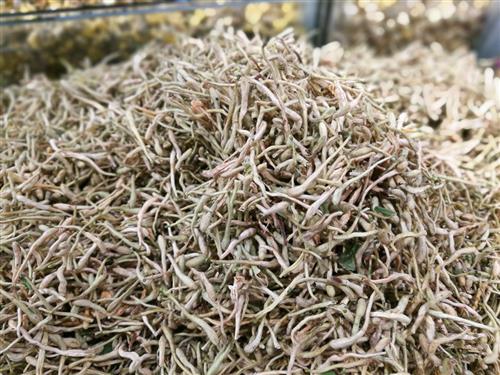First, honeysuckle can spread wind and heat, clear solution of blood poisoning, generally used for a variety of heat diseases, such as body heat, rash, spotting, fever, sore throat, sore throat, etc., all have significant results. Although honeysuckle is an anti-inflammatory drug, it cannot be eaten regularly. The side effects of honeysuckle make the constitution vain. It only takes place when there is a fire in the body and a cold or cough is taken. Long-term use is not recommended.
Second, honeysuckle taste cold, honeysuckle's side effects will affect the spleen and stomach's transport, this herb is generally used in the summer is more appropriate.
Third, the weak spleen and stomach should not be commonly used. Do not eat often, because it will make the body become virtual, only in the body when there is a fire, cold cough taking, is not recommended for long-term use. Honeysuckle taste cold and cold, will affect the transport of the spleen and stomach, this herb is generally used in the summer is more appropriate.
Fourth, weak spleen and stomach should not be commonly used.
Five, can not eat often, because it will make the body become virtual, only in the body there is a fire, when taking a cold cough, is not recommended for long-term use.
Sixth, honeysuckle taste cold, will affect the spleen and stomach of the transport, this herb is generally used in the summer is more appropriate.

Honeysuckle tea center excitement
A variety of experimental methods, such as electroshock and cage rotation, proved that after taking honeysuckle tea, rats, mice and other animals can cause central nervous system excitement, the effect of intensity is 1/6 of caffeine, the two combined without addition and enhancement effect.
Honeysuckle tea has hypolipidemic effect
Rats fed with honeysuckle 2.5g/kg can reduce intestinal cholesterol absorption and reduce plasma cholesterol levels. In vitro experiments also found that honeysuckle tea can be combined with cholesterol, but Simiao Yongan Decoction (Honeysuckle, Scrophularia, Angelica, Licorice) was used to treat experimental atherosclerosis in rabbits. No hypolipidemic and aortic wall cholesterol levels were observed.
Honeysuckle Tea Strengthens Defense Function
Honeysuckle decoction diluted to a concentration of 1:1280 can still promote leukocyte phagocytosis. Intraperitoneal injection of honeysuckle injection also significantly promoted the phagocytic function of inflammatory cells.
Honeysuckle Tea Antiendotoxin
We used the mouse test to determine the endotoxin content. 300% honeysuckle tea (Lonicera) injection was diluted 1:2-1:64. The in vitro test reduced the endotoxin in the test solution by either the concave or the tube method. The content, where the dilution tube of 1:2-1:8 is in the same liquid state as the negative control tube, the positive control is gel-like.
Honeysuckle (Lonicera) tea distillate 6g/kg intravenous injection of Pseudomonas aeruginosa poisoning each other 2.8mg/kg intravenous injection of rabbits caused by temperature drop and white blood cell count have a confrontation, honeysuckle (Lonicera) distillate 7.5g/kg Or injection of 2.5g/kg intraperitoneal injection, Pseudomonas aeruginosa endotoxin 65mg/kg intraperitoneal injection of mice have a protective effect, reduce the mortality of mice.
Avatrombopag Maleate Intermediate
Avatrombopag Maleate Intermediate,Avatrombopag Maleate,Avatrombopag Maleate Api,Isonipecotic Acid Ethyl Ester
Shandong Bolode Bio-technology Co., Ltd. , https://www.bldpharma.com